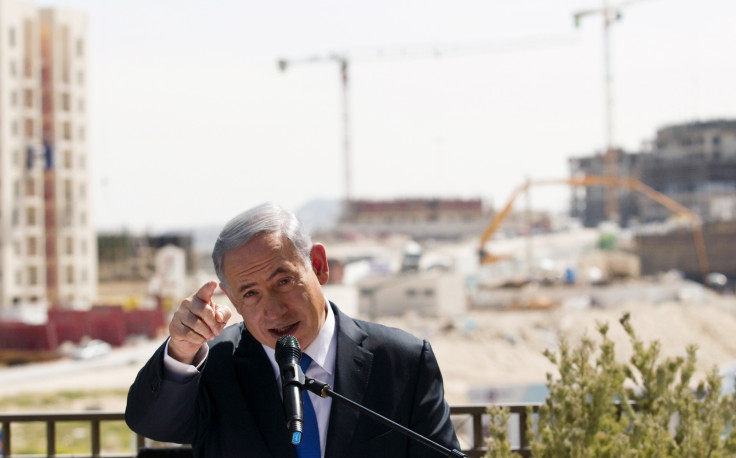Israel: 5 things Benjamin Netanyahu may regret saying about America, Arab voters, Palestine, Europe and the Israeli left

Benjamin Netanyahu has been on the war path over the past three months, thundering against his political opponents both at home and away over what was a bitter and and times vitriolic election campaign in Israel.
He began by upsetting Europe over the Charlie Hebdo fallout, then took on US president Barack Obama over Iran and then - over the past 48 hours - attacking senior Israeli politicians, judges, Arab voters and Palestinians in a series of online tirades that some credit with tipping the balance of a close and acrimonious election.
Below, IBTimes UK looks at Netanyahu's top five controversial comments of recent weeks - and how they could make governing for another four years difficult.
Arab voters are going en masse to the polls. Left-wing NGOs are bringing them on buses.
Even Israel's more right wing media pulled Netanyahu up on his election night claim that his rivals were bussing in Arab voters in order to defeat Likud. Not least, critics pointed out, because Arabs in Israel have as much democratic right to vote is Israeli Jews.
His comments come at a time when divisions between Israel's Jewish and Arab populations are as divided as ever before, with riots, murders and killings in Jerusalem and the war in Gaza last summer serving to polarise the two communities even more.
The victory of the Arab Joint List in Wednesday's election also means that Arab parties are the third largest block in the Israeli Knesset. Both the politicians of those parties and their constituents are unlikely to forget Netanyahu's comments in a hurry.
If Tzipi [Livni] and Bougie [Isaac Herzog] form a government, Hamastan B will be established here.
A controversial claim on a number of levels; firstly in once again implying that the Israeli left is in the pocket of radical elements in the Palestinian community in Israel, the West Bank and Gaza. and secondly by directly accusing two politicians who, while rivals, are prominent Knesset figures and, in Livni's case, a former ally.
'His comments come at a time when divisions between Israel's Jewish and Arab populations are as divided as ever before.'
Not to mention the fact that Herzog and Livni are both relatively hawkish on the Palestinian issue - or at least have never given any real reason for thinking that they are not.
I think that anyone who moves to establish a Palestinian state and evacuate territory gives territory away to radical Islamist attacks against Israel.
The most controversial of all Bibi's election campaign speeches saw him rule out a Palestinian state for the first time - a direct contradiction of his comments in 2009, when he said he supported the two state solution.
Sceptics point out that Netanyahu's policies of increasing settlement construction and failure in last year's peace talks with the Palestinian Authority (PA) had made a Palestinian state basically impossible anyway, but Israel's rhetorical commitment to it has been the basis of international-sponsored peace talks for decades - it will be even more difficult to convince the PA to come to the table with Netanyahu given his new stance.
Jews have been murdered again on European soil only because they were Jews and this [...] is expected to continue. We are preparing and calling for the absorption of mass immigration from Europe.
His comments made in the wake of the Charlie Hebdo attacks angered European leaders, prompting French President Francois Hollande to speak out and say that terrorism is not a reason to move to Israel. Others went further, accusing Netanyahu of electioneering.
It comes at a time when support for Israel in Europe is on the wane, with rising momentum in the boycott, divestment and sanctions (BDS) movement and support in a number of countries - including France - for recognising a Palestinian state.
American money [is] bringing the Arabs to the ballot box.
This comment was sent out to Likud voters on the eve of the election, but feeds into a number of tirades that Netanyahu and his allies have given about the US and President Barack Obama over the last few weeks.
'Netanyahu's talk of a "US smear campaign" against him won't help smooth things over.'
Netanyahu's very public spat with Obama - during which the US president refused to attend the Israeli prime minister's address to US Congress - stems from his absolute rejection of American efforts to negotiate with Iran over its nuclear programme; which many consider to be Obama's legacy project.
But the US is a formidable ally for Israel, the one permanent member on the UN Security Council to consistently veto resolutions about Israel's treatment of the Palestinians, and a financial backed to the tune of billions of dollars a year.
Netanyahu may have secured a victory at home, but mending ties with Obama is critical, and his talk of a "US smear campaign" against him won't help smooth things over.
© Copyright IBTimes 2024. All rights reserved.






